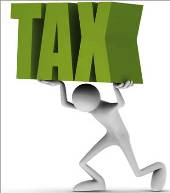 | « Back to article | Print this article |
 The Union Budget for the FY 2013-14 will be presented before the Parliament on February 28 and the finance minister has promised many reformsexpected to combat inflation along with stable tax rates.
The Union Budget for the FY 2013-14 will be presented before the Parliament on February 28 and the finance minister has promised many reformsexpected to combat inflation along with stable tax rates.
There may also be some changes in the tax slabs to provide some relief from the ever-growing inflation.
Here are a handful of the number of amendments expected and predicted by analysts in the Union Budget for2013-2014.
Rent allowance
All those people who do not have their own house and stay in a rented accommodation or employees who do not get accommodation or house rent allowance from their employer enjoy a special tax deduction on the rent paid by them.
This deduction is allowed under section 80GG of the Income Tax Act in which an individual can avail 25 per cent deduction on the rent amount.
However, the limit is restricted to Rs 2,000 per month and has not changed for many years, which is now expected to change this year.
Moreover, under the Income Tax Act 1961, there exist 2 dissimilar sets of tax treatments with reference to rent free lodging provided by the employer.
While a government employee only pays the license fee, non-government sector employees who get rent-free lodging from their employees are taxed heavily at 7.5-15 per cent of the salary.
There is a necessity to maintain uniformity in taxes and a new system needs to be introduced offering equal rights to employees without discrimination.
Standard exemption should continue as in the past and should be given to all employees who are salaried, while the transport allowance deduction should increase.
Capital gain scheme
To save capital gain, an individual can invest in capital gain bonds according to section 54EC of the Income Tax Act.
The upper investment limit under this section is Rs 50 lakh (Rs 5 million).
In the past, there was no such cap and all transactions related to property were done with white money.
With the government making changes to this law few years ago and placing a limit, people have been resorting to unwanted ways to save tax.
This cap, hence, is expected to be removed in theforthcoming budget.
Rebate for senior citizens
The exemption limit for senior citizens over 80 years of age is Rs 500,000 per annum, which when compared to other taxpayers sounds reasonable.
However, in case of an income of more than the specified amount, they are required pay 20 per cent Income Tax on income up to Rs 10 lakhs (Rs 1 million).
Hence, the tax slabs